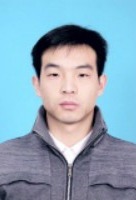李长楷

基本信息 |
部 门: 大学物理教学中心 职 称: 副教授 邮 箱: lichangkai@pku.edu.cn 办公室:南楼212 李长楷,硕士生导师,中共党员,北京大学博雅博士后、中国核学会射线束技术分会理事,Physical Review审稿人 |
学习工作经历 |
2025.01—至今 副教授 2024.07—至今 湘潭大学 任教 2023.06—2023.08 上海科技大学 大科学中心 助理研究员 2021.07—2023.06 北京大学 物理学院 博士后 2018.07—2021.06 武汉大学 动力与机械工程学院 博士后 2015.09—2018.06 北京师范大学 粒子物理与原子核物理专业 理学博士 |
研究方向 |
擅长多时空尺度的粒子输运理论计算。精通包括OCTOPUS、SIESTA等激发态动力学代码;精通LAMMPS经典分子动力学软件;精通MCNPX、GEANT4、FLUKA等多种蒙特卡罗粒子输运软件;近年来开始深度学习相关的技术开发及应用。 曾深入研究包括硼中子俘获治疗、核测井、核探测器解谱、飞秒激光退火、光致相变等多个课题。近年的主要研究方向是离子、激光与物质相互作用,也欢迎核科学与技术方向的学生报考。 |
科研项目 |
1. 国家自然科学基金青年项目(12105205),低速离子与物质作用中电子能损(30万),2022/01-2024/12,主持,结题; 2. 中国博士后科学基金第70批面上一等资助(2021M700003),基于深度学习技术对离子与物质作用中电子能损的研究(12万),2021/11-2023/06,主持,结题; 3. 中国博士后科学基金第66批面上二等资助(2019M662693),基于含时密度泛函理论的飞秒激光修复薄膜缺陷研究(8万),2019/11-2021/06,主持,结题; 4. 中国博士后科学基金第13批特别资助(2020T130486),低速离子的电荷态对其电子能损的影响(18万),2020/07-2021/06,主持,结题; 5. 湖北省博士后创新研究岗位(2019112035),飞秒激光辅助过饱和掺杂(6万),2019/11-2021/06,主持,结题; 6. 湖南省教育厅项目(24C0063),基于深度学习的低速离子电子能损解析计算理论研究(2万),2024/09-2026/09,主持,在研; 7. 湘潭大学人才引进项目,深度能损解析计算平台的开发(20万),2024/12-2027/12,主持,在研; 8. 国家自然科学基金重大仪器专项(51727901),薄膜生长缺陷跨时空尺度原位/实时监测与调控实验装置(6500万),2018/01-2022/12,主要参与人(负责飞秒激光调控薄膜缺陷子课题),结题; 9. 国家自然科学基金重大项目(12192280),先进核能系统中材料的若干协同损伤作用机理研究(1498 万),2022/01-2026/12,主要参与人(负责离子在物质中能量沉积机制研究),在研; 10. 国家自然科学基金重点项目(12135002),基于深度学习的电子能损和原子间作用势研究及若干应用(300万),2022/01-2026/12,主要参与人(负责离子在物质中能损规律研究及能损数据库构建),在研。
|
代表性成果(专著、论文和专利等) |
[1] Chang-kai Li, Yang Liu, Jian-ming Xue, Xiao-ping Ouyang, and Feng-Shou Zhang, Electronic stopping of protons in magnesium from first principles, Physical Review A 109, 012818 (2024). [2] Chang-kai Li, Xun Guo, Jian-ming Xue and Feng-Shou Zhang, Electronic stopping power of protons in platinum: Direct valence and inner-shell-electron excitations from first-principles calculations, Physical Review A 107, 052814 (2023). [3] Chang-kai Li, Jian-ming Xue, Xiao-ping Ouyang, and Feng-Shou Zhang, Electronic stopping power in titanium for proton and helium ions from first-principle calculations, Physical Review A 107, 042813 (2023). [4] Chang-kai Li, Jian-ming Xue and Feng-Shou Zhang, Channeling electronic stopping power of lithium ions in diamond: Contribution of projectile inner-shell electrons, Physical Review A 106, 022807 (2022). [5] Chang-Kai Li, Jian-ming Xue, Xiao-Ping OuYang and Feng-Shou Zhang, Resonant coherent excitation and energy loss of slow channeling helium ions in AlN, Physical Review A 105, 012819 (2022). [6] Chang-kai Li, Sheng Liu, Qiang Cao, Feng Wang, Xiao-ping Ouyang, Feng-Shou Zhang, Effect of resonant coherent excitation on the electronic stopping of slow channeled ions, Physical Review A 100, 052707 (2019). [7] Chang-kai Li, Fei Mao, Feng Wang, Yan-long Fu, Xiao-ping Ouyang and Feng-Shou Zhang, Electronic stopping power of slow-light channeling ions in ZnTe from first principles, Physical Review A 95, 052706 (2017). [8] Chang-Kai Li, Feng Wang, Bin Liao, Xiao-Ping OuYang and Feng-Shou Zhang, Ab initio electronic stopping power and threshold effect of channeled slow light ions in HfO2, Physical Review B 96, 094301 (2017). [9] Chang-kai Li, Fei Mao, Yan-long Fu, Bin Liao, Xiao-ping Ouyang, Feng-Shou Zhang, Electronic stopping power of slow H+ and He2+ ions in CdTe from first principle, Nuclear Inst. And Methods in Physics Research B 392, 51 (2017). [10] Chang-kai Li, Feng Wang, Bin Liao, Xiao-ping Ouyang, Feng-Shou Zhang, Nonlinear electronic stopping power of channeled slow light ions in ZnSe: Evidence of energy loss caused by formation and breaking of chemical bond, Nuclear Inst. and Methods in Physics Research B 426, 41 (2018). [11] Yan Long Fu, Chang Kai Li, Zhao Jun Zhang, Hai Bo Sang, Wei Cheng, Feng Shou Zhang, Electronic properties of defects in Weyl semimetal Tantalum Arsenide, Chinese Physics B 27, 097101 (2018). [12] Chang-Kai Li, Sheng Liu and Feng-Shou Zhang, Chemical effect on the energy lose for slow ion channeling a narrow band gap semiconductor, Nuclear Inst. and Methods in Physics Research B, 444, 38 (2019). [13] Yan Long Fu, Chang-kai Li, Hai-Bo Sang, Wei Cheng, Feng-Shou Zhang, Electronic stopping power under channeling conditions for slow ions in Ge using first principles, Physical Review A 102, 012803 (2020). [14] LI Chang-kai, MA Ying-jie, TANG Xiao-bin, XIE Qin, GENG Chang-ran, CHEN Da, Research of accelerator-based neutron source for boron neutron capture therapy, Nuclear Techniques 36, 090203 (2013). [15] LI Chang-kai, TANG Xiao-bin, YUE Ai-zhong, Pulse-height tally variance reduction in deep penetration problem, Nuclear Techniques 38, 030501 (2015). [16] Ying-ying Zhang, Chang-Kai Li, Dong-yan Liu, Ying Zhang, Yan Liu, Monte Carlo simulation of a NaI(Tl) detector for in situ radioactivity measurements in the marine environment, Applied Radiation and Isotopes 98, 44 (2015). |
荣誉奖励 |
|


